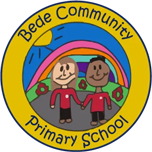Modern Foreign Language
Intent
At Bede Community Primary School, all pupils in Key Stage Two are entitled to learn an additional language. Studying a foreign language broadens children's horizons and introduces them to new cultures. Modern Foreign Language (MFL) lessons provide students with the chance to express their ideas and thoughts in another language, while also understanding and responding to native speakers both verbally and in writing. These lessons also allow students to engage with age-appropriate literature and songs in the target language. Ultimately, MFL at Bede aims to establish a strong foundation for future language learning, equipping students with the skills needed to become lifelong learners. This foundation serves both the joy of learning languages and the practical need for studying or working in other countries.
Our curriculum enables pupils to become confident language users who show respect and understanding of diverse cultures at the local, national, and global levels. Through high-quality Spanish lessons at Bede Community Primary School, our goals are to:
- Provide every Key Stage Two student the opportunity to study Spanish over four years, sparking their interest in Spanish and Spanish speaking cultures.
- Teach vocabulary and linguistic structures as outlined in the National Curriculum, covering listening, speaking, reading, writing, and cultural understanding.
- Enable children to confidently ask and answer personal questions in Spanish, allowing them to engage in simple conversations with Spanish speakers.
- Offer opportunities for students to manipulate the language for their own purposes, applying increasingly complex sentence structures.
- Teach Spanish phonics, enabling students to spell phonetically, read, and speak with greater confidence and pronunciation accuracy.
- Encourage students to compare Spanish and English vocabulary, using cognates and near-cognates to understand unfamiliar texts.
- Help students compare Spanish and English grammar, syntax, and sentence structure to enhance their understanding of both languages.
- Encourage resilience by providing opportunities for children to make and learn from mistakes in the target language.
- Foster an understanding of Spanish as a global language and why it is spoken in various countries in Central and South America.
- Help students grasp their role in the broader world and the concept of interdependence.
Implementation
Weekly 45-minute lessons are conducted by a Spanish native speaker staff member with a degree in languages supported by extensive training in MFL pedagogy.
The curriculum has been designed by the MFL specialist to ensure comprehensive coverage of reading, writing, speaking, and listening. It includes opportunities to revisit knowledge at different levels of complexity over the four years. Lessons are designed to be interactive and engaging, with students working as a class, in small groups, or in mixed-ability pairs to complete tasks suited to their individual learning levels. Differentiated activities include interactive and physical games, stories, songs, phonics, grammar exercises, sentence-building tasks and rhymes or role-plays.
Impact
Both formative and summative informal assessments are used during Spanish lessons to track student progress over time. Data is recorded using tracking tools to demonstrate individual attainment and progress, while also identifying gaps in knowledge. This information is then used to guide the planning of future lessons and units.
